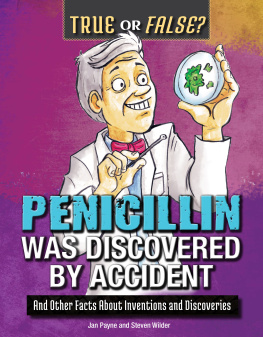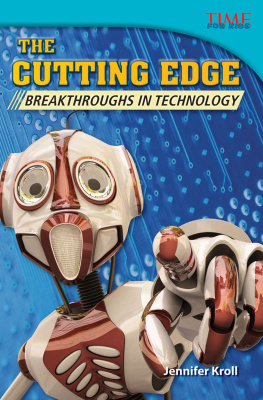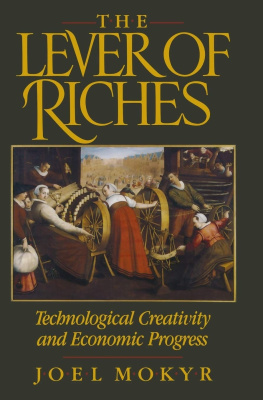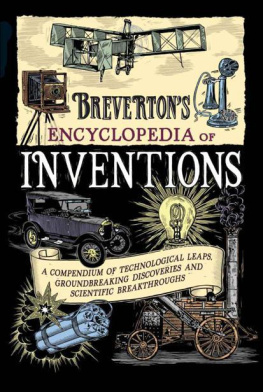BREVERTONS ENCYCLOPEDIA OF INVENTIONS


BREVERTONS ENCYCLOPEDIA OF INVENTIONS
A COMPENDIUM OF TECHNOLOGICAL LEAPS, GROUNDBREAKING DISCOVERIES AND SCIENTIFIC BREAKTHROUGHS
TERRY BREVERTON

CONTENTS
CHAPTER 1
THE DAWN OF TECHNOLOGY
CHAPTER 2
THE GENIUS OF THE CLASSICAL WORLD
CHAPTER 3
CENTURIES OF INNOVATION
CHAPTER 4
RENAISSANCE TECHNOLOGY AND THE SCIENTIFIC REVOLUTION

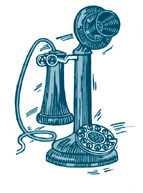
CHAPTER 5
THE INDUSTRIAL REVOLUTION
CHAPTER 6
NEW INDUSTRIAL TECHNOLOGY
CHAPTER 7
THE ELECTRIC AGE
CHAPTER 8
THE DIGITAL WORLD

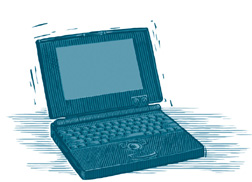
INTRODUCTION

This book tells us about the extraordinary discoveries and inventions that have contributed to knowledge and progress through breakthroughs in science and technology. The efforts and ingenuity of mankindfrom the earliest, most basic of discoveries to todays most cutting-edgehave shaped the modern world, and continue to allow the human race to evolve to reach its fullest potential.
All collections such as this are bound in some way to be subjective. For instance, does the discovery of a treatment for a rare form of cancer compare with the development of the ability to perform transplant operations? Also, for some inventions and discoveries we have specific times, places and individuals who are responsible, but where do we place, or even include, the discovery of how to make fire? Again, one would think that the invention of buttons enabled us to develop todays clothing, but in fact it was the unknown 13th-century inventor of the buttonhole which allowed this.
UNKNOWN HEROES OF SCIENCE
Even when we come to known inventors or discoverers, sometimes they are standing on the shoulders of giants, following on from a long line of original thinkers. In other cases, the wrong inventor has been attributed because he or she was better at innovating or marketing, or simply better-known. Thus, you will surprisingly read about Merlyn Pryce and the discovery of Penicillium notatum mold in 1928, and of the men and women who developed penicillin, the antibiotic agent which has saved millions of livesand not Alexander Fleming. And the genius Nikola Tesla, carrying on the work of David Hughes, was really responsible for the radio, not the commonly attributed Marconi. Equally, Joseph Swan, not Thomas Edison, developed the electric lightbulb. There are more than 20 great ideas which changed todays world, which have been re-attributed in this text. Thus this is not a regurgitation or a re-hash of past books upon inventions and discoveries, but a genuine attempt to discover who has improved or changed our lives, and in what ways. I have attempted to include whoever has contributed in some major way to learning, medicine and the sciences in general. However, great artists are not included. Although we can quite easily say that Shakespeare or T.S. Eliot or Rembrandt have helped us advance culturally, we cannot say that they have changed the world in any concrete manner. Also, this book does not include only those who have altered the world for the better, but also those responsible for weapons of destruction. Sometimes an innovator rather than an inventor or discoverer has been included, where their contribution has been of major significance. Some entries are longer than others, such as those on the unknown, yet prolific, geniuses David Hughes and Richard Trevithick. This usually has been carried out in the interest of putting the record straight.
FROM PREHISTORY TO THE SCIENTIFIC AND INDUSTRIAL REVOLUTIONS
The book begins with prehistorythe knife, fish hook, cloth and sewing needle, quern-stone and bow and arrow. Then we move to the ancientsthe Sumerians, Chaldeans, Egyptians, Greeks and Romans with mathematics, astronomy, theory of atoms, lever and astrolabe. It is astonishing how much was known, say, about the existence of atoms and their indestructibility at this time. Men knew that the Earth was round, and that it was not the center of the Universe, but an incredible amount of knowledge was lost during the ensuing Dark Ages of Western civilization. However, during these centuries, the Chinese and Islamic worlds made great advances with clocks, gunpowder, medicine, surgery, gears, algebra, crankshafts and the compass. Then with the Renaissance in the Western world, we began to rediscover what had been lost. Gutenbergs printing press of 133640 began to disseminate scientific thought from the Arab world to the West, and the great Scientific Revolution took place in line with the Renaissance, with the conformist teachings of the church being slowly overthrown in many aspects of life. This was the age of da Vinci, Copernicus, Galileo, Harvey, Boyle, Hooke and Newtonmen who changed the world. In turn, this era of scientific curiosity, experimentation and discovery led to the Industrial Revolution, responsible for the modern age. We see the appearance of steam engines, textile machinery, the development of the factory system, electricity, pulped paper and the mechanized steel industry.
THE ACCELERATION OF INVENTION AND INNOVATION
In the 20th century, two World Wars spurred invention and discovery, often not for the good of mankind, but still a demonstration of mans incredible ability to invent and innovate. Since the Second World War we have seen huge advances in agricultural productivity, and are in the middle of an Information Revolution and the Electronics Age. The most exciting developments at present, and potentially the most problematical, are in health, disease treatment, genetic modification and medicine. Scientists are progressing toward the day when it will be possible to extend the life of humans, when many genetic diseases can be prevented, and when certain types of cancer can be cured or delayed. Every reader of this book can see that his or her life has altered in many ways because of the inventions and discoveries of their lifetimes and that of their parents. It is the reason for livingto improve rather than accept, to query rather than conform, so humankind can progress. To the inventors featured in this book, we all owe a debt of thanks. The scientific spirit has helped us move from forest shelters to where we are today, and will improve the lives of our children for generations to come.
Next page

